Abstract
Cultural characteristics and serological relationships of pathogenic marine vibrios isolated from fish in the Pacific Northwest were studied. These organisms were compared with cultures of Vibrio anguillarum, a known fish pathogen. On the basis of morphological and cultural characteristics, the Pacific Northwest strains of Vibrio were found to be closely related to V. anguillarum. Serological analyses of thermostable antigens served to distinguish three serotypes among the vibrios. Serotype 1 was composed of organisms isolated from Northwest salmonids; serotype 2 of strains of V. anguillarum from European waters; and serotype 3 of organisms isolated from Pacific herring. The epidemiology of vibrio disease among populations of fish in the Pacific Northwest is discussed.
Full text
PDF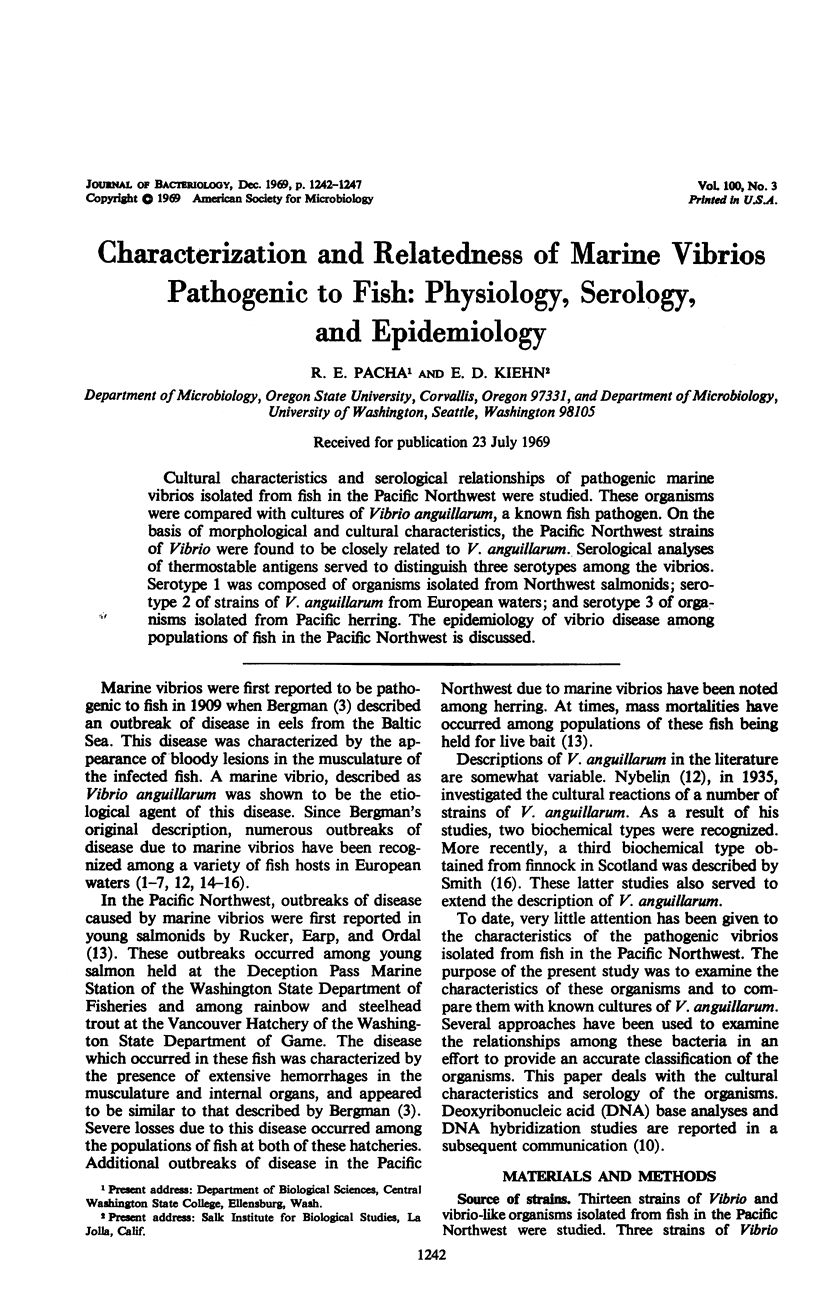
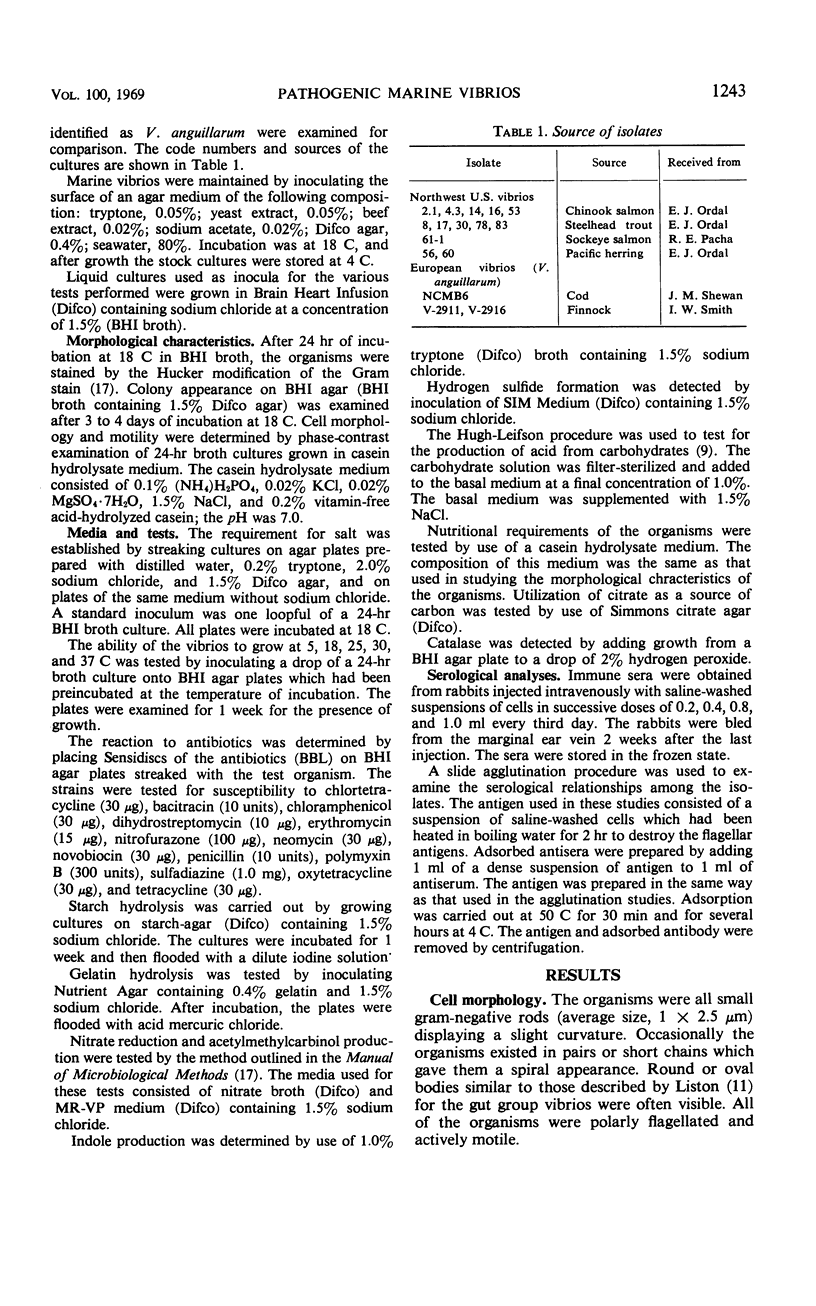
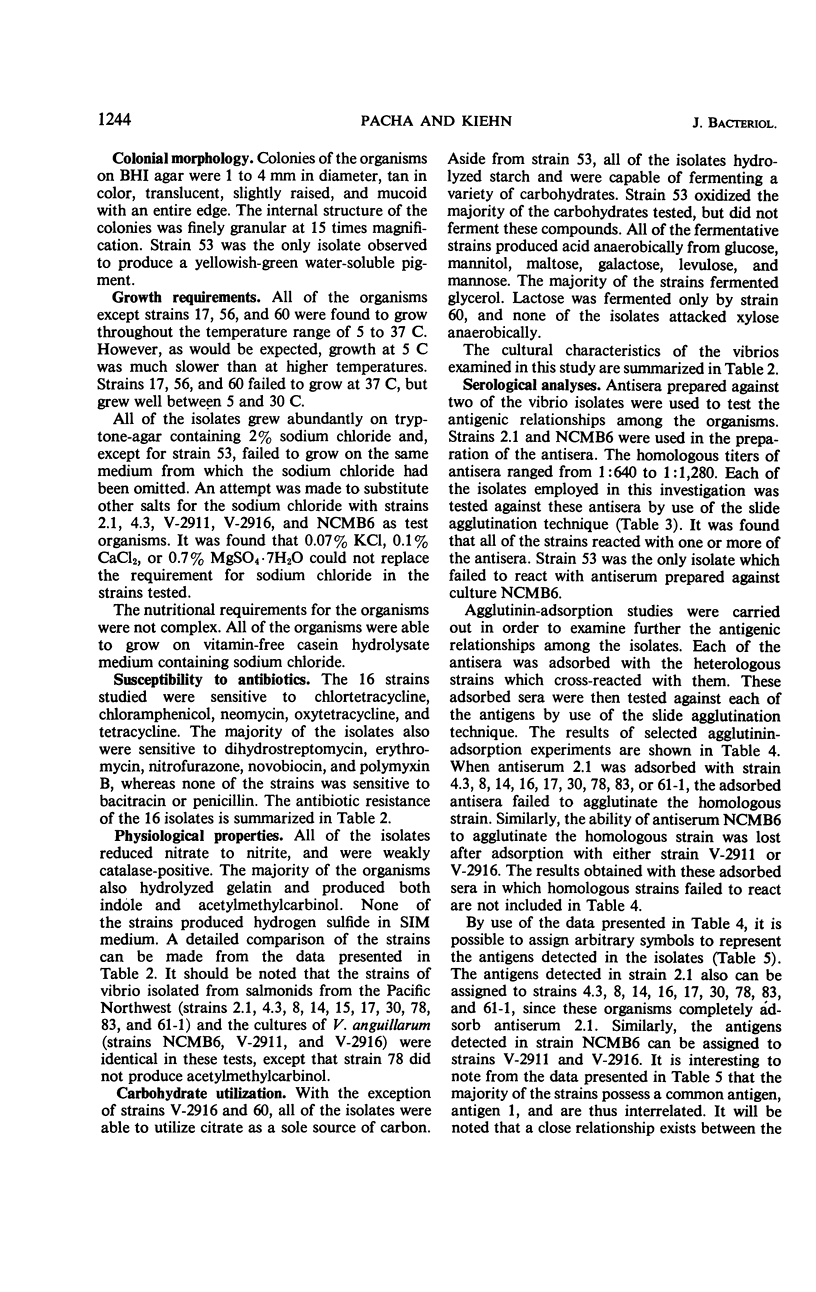
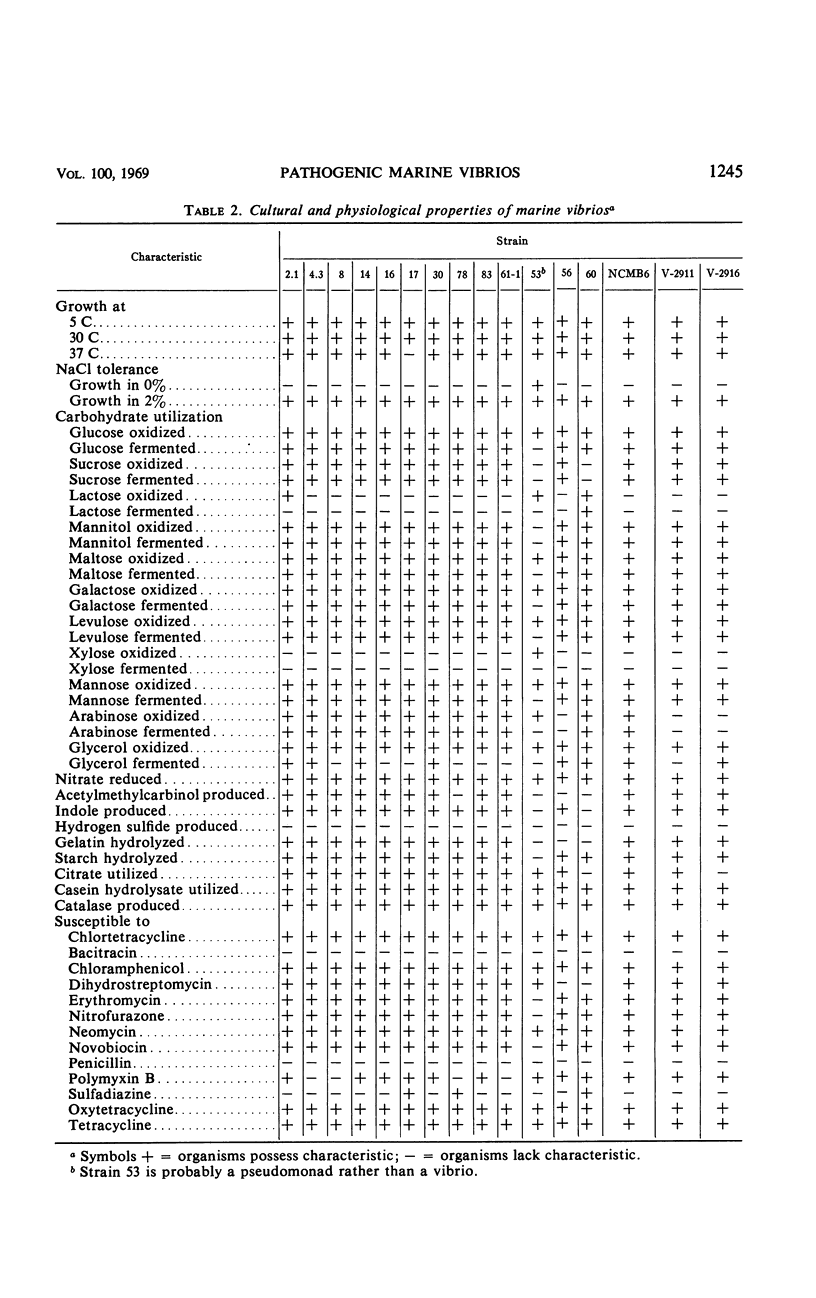
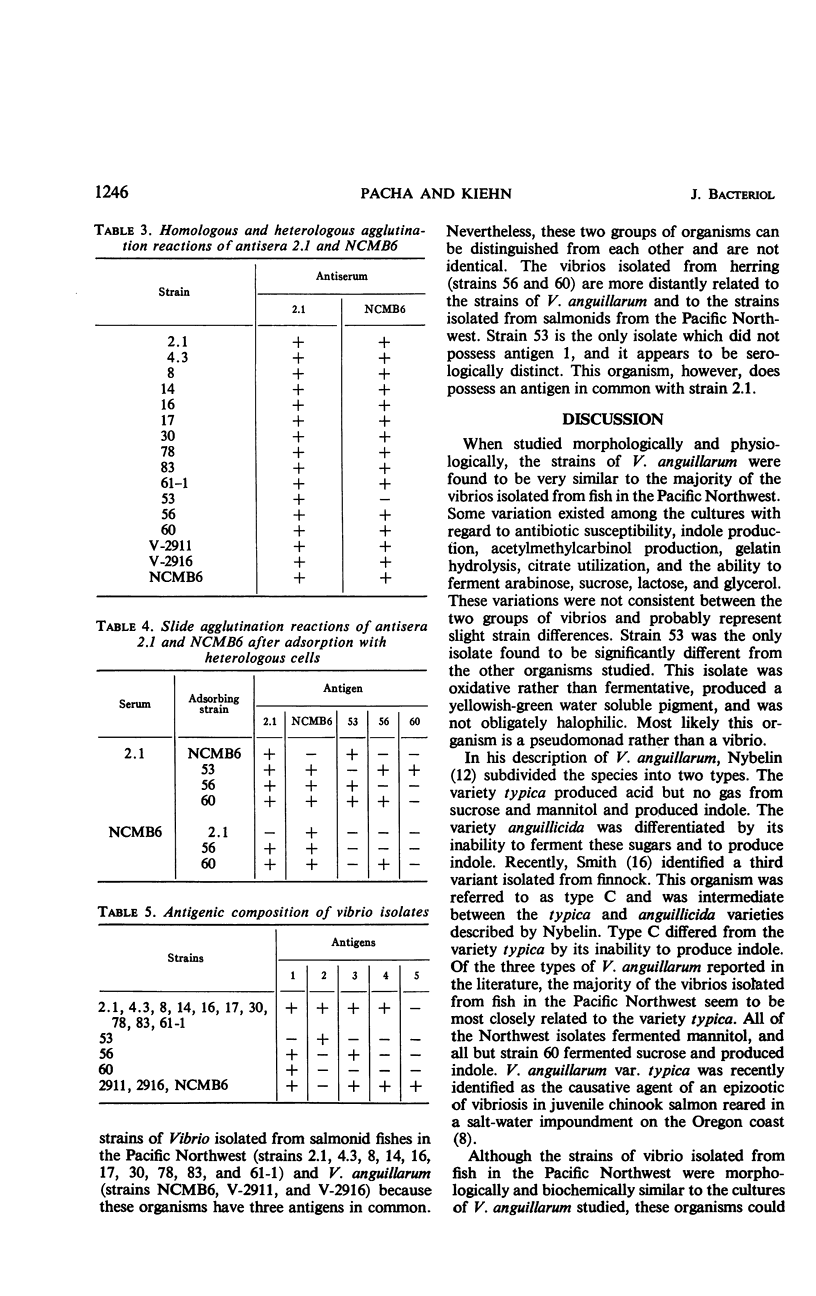
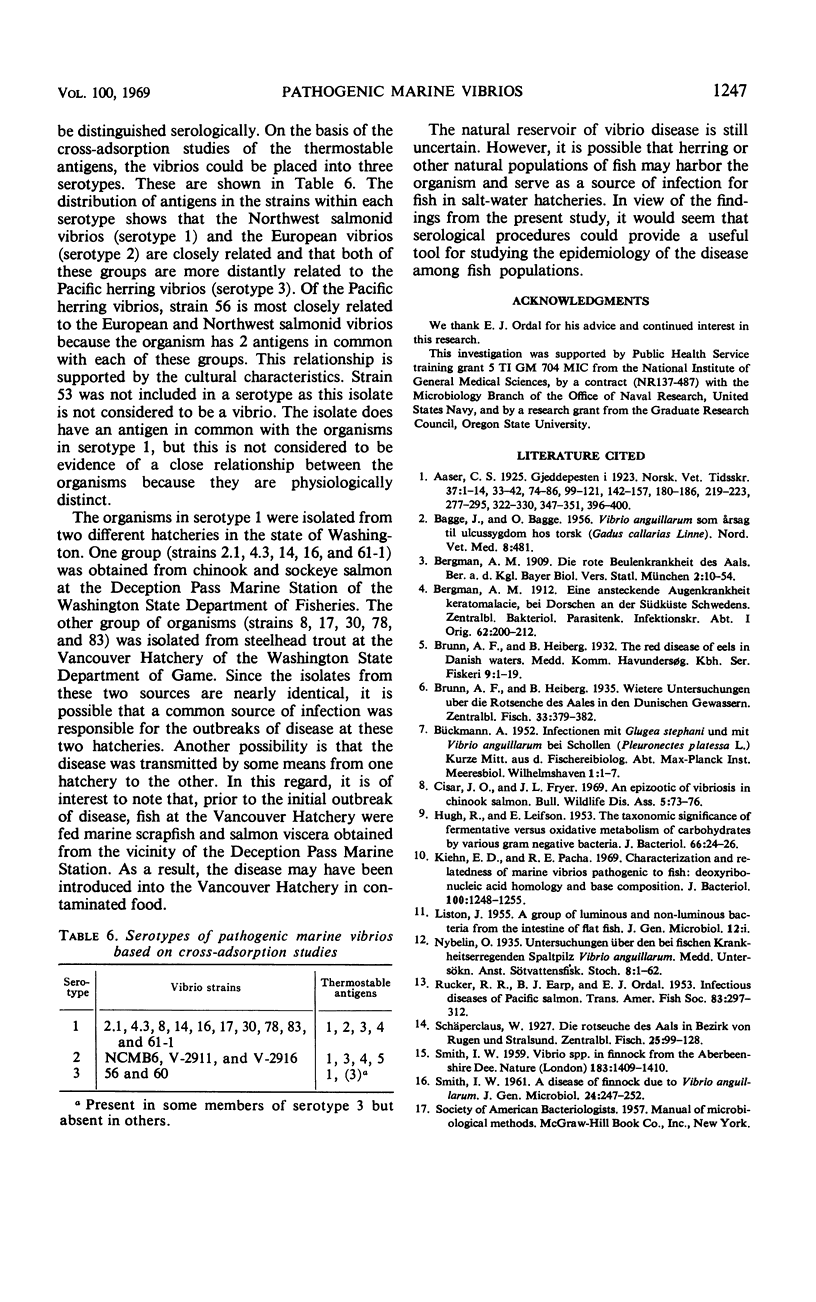
Selected References
These references are in PubMed. This may not be the complete list of references from this article.
- Cisar J. O., Fryer J. L. An epizootic of vibriosis in chinook salmon. Wildl Dis. 1969 Apr;5(2):73–76. doi: 10.7589/0090-3558-5.2.73. [DOI] [PubMed] [Google Scholar]
- HUGH R., LEIFSON E. The taxonomic significance of fermentative versus oxidative metabolism of carbohydrates by various gram negative bacteria. J Bacteriol. 1953 Jul;66(1):24–26. doi: 10.1128/jb.66.1.24-26.1953. [DOI] [PMC free article] [PubMed] [Google Scholar]
- Kiehn E. D., Pacha R. E. Characterization and relatedness of marine vibrios pathogenic to fish: deoxyribonucleic acid homology and base composition. J Bacteriol. 1969 Dec;100(3):1248–1255. doi: 10.1128/jb.100.3.1248-1255.1969. [DOI] [PMC free article] [PubMed] [Google Scholar]


